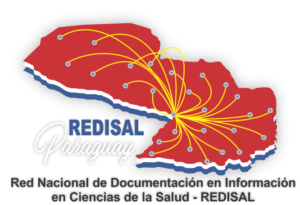Concordancia de antígenos de dengue en el ELISA de captura de IgM (MAC ELISA) en el IICS-UNA
Concordance of dengue antigens M antibody-capture ELISA (MAC ELISA) in the IICS-UNA
Mem. Inst. Invest. Cienc. Salud (Impr.); 8 (2), 2010
Año de publicación: 2010
El dengue es una enfermedad aguda grave considerada actualmente como infección reemergente, cuyo vector principal es el Aedes aegypti. En Paraguay en el 2007 fueron reportados 28.181 casos, 55 se clasificaron como fiebre hemorrágica del dengue de los cuales 7 fallecieron. El 90% de los casos fueron de Asunción y del Departamento Central,10% del resto del país. En los últimos años se han desarrollado diferentes sistemas inmunoenzimáticos para el diagnóstico del dengue, entre ellos el ELISA de captura de IgM (MAC ELISA). El objetivo de este estudio observacional analítico de corte transverso fu ecomparar la prueba del MAC ELISA desarrollada en el Instituto de Investigaciones en Ciencias de la Salud (IICS) utilizando antígenos suministrados por el Instituto Pedro Kouri(IPK) de Cuba y el Evandro Chagas de Brasil, con el kit comercial ELISA IgM por capturapara virus del dengue (Focus Diagnostics Inc. Cypress, CA, USA). Fueron seleccionados alazar 92 sueros de pacientes codificados que concurrieron al IICS con sospecha de dengue, respetándose la confidencialidad de los mismos. La concordancia obtenida fue del94.6% (Índice Kappa: 0.891) utilizando el antígeno del IPK y 96.7% (Índice Kappa:0.9350) con el antígeno del Evandro Chagas, mostrándose alta significancia estadística(p<0.00001) en ambos casos. La excelente concordancia obtenida con los dos antígenos indica que los mismos pueden ser utilizados indistintamente en la prueba del MAC ELISA desarrollada en el IICS, a fin de apoyar el diagnóstico del dengue a menor costo y quesería de producción local.
Dengue is an acute disease currently considered a re-emerging infection, whose main vector is Aedes aegypti. In 2007, 28,181 cases were reported in Paraguay, 55 were classified as dengue hemorrhagic fever and seven of them died. Ninety percent of the cases were from Asunción and the Central Department and the remaining 10% from the rest of the country. In recent years various immunoenzymatic systems have been developed immunoassay for the diagnosis of dengue, including the M antibody captureELISA (MAC ELISA). The aim of this cross-sectional observational study was to compare the MAC ELISA test developed at the Instituto de Investigaciones en Cienciad de la Salud(IICS) using antigens supplied by the Instituto Pedro Kouri (IPK) of Cuba and Evandro Chagas of Brazil with a commercial kit of M antibody capture ELISA for dengue virus (Focus Diagnostics Inc. Cypress, CA, USA). Ninety two coded serum samples wererandomly selected from patients who attended the IICS with suspected dengue, respecting their confidentiality. The concordance obtained was 94.6% (Kappa Index: 0.891) using the IPK antigen and 96.7% (Kappa index: 0.9350) with the antigen from Evandro Chagas showing high statistical significance (p<0.00001) in both cases. The excellent concordance obtained with the two antigens indicates that they can be used indistinctly in the MAC ELISA test developed in the IICS to support the diagnosis of dengue at a lower cost and would be locally produced.


